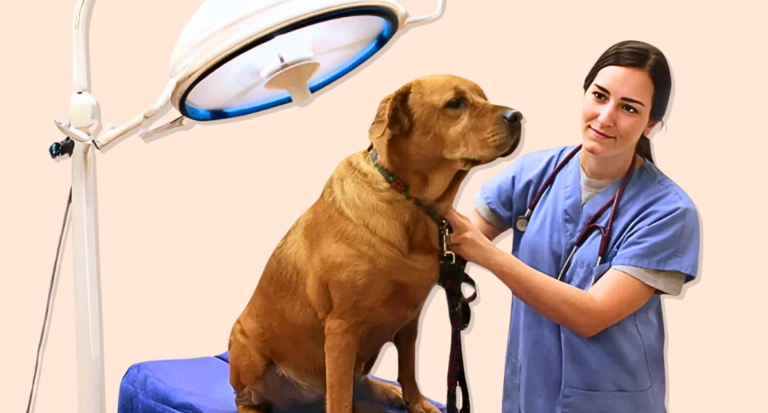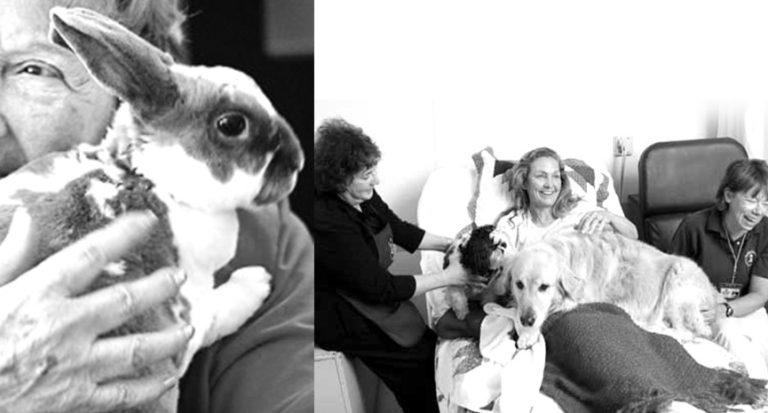With all of us having to tighten our belts and watch our spending, the economy is also affecting the relationship between people and their pets. But that doesn’t mean denying beloved pets medical care, training and toys; it just involves wise planning. Several area businesses report that people are cutting back on higher-end items, at least until things start to improve, yet people are still getting dogs to make them feel better and in some cases will still buy the higher-end product versus buying a less expensive version that won’t last as long. The recession may mean less frequent visits to the vet and groomer for some dogs and only getting the absolute necessities rather than what used to be considered routine. Merchants and veterinary professionals, recognizing the reality of the economic situation, work with customers and patients to come up with feasible solutions and alternatives. What the current economic climate requires from both providers and consumers is patience and imagination.
KENNELS & DAY CARE
Before the recession, people dropped their dogs off regularly for day care and boarded them in kennels when they went on vacations. Then people lost jobs and stayed home with their pets, at least until they were able to get another job. Business owners have to worry about their own overhead as well as keeping clients satisfied and attracting new ones without raising prices. Some cut back on advertising, some add new services and most offer ‘specials’ for long-term clients.
At Rye Country Kennels in Rye, N.Y. the holiday seasons are still busy, but off-season is slower, says Sam DiEdwards, employee in the family business owned by his parents. “A lot of people in this area worked in downtown Manhattan and were hit hard.” Rye Country Kennels started offering a free night for existing clients who referred a new client to them about a year ago, but simply “discounting boarding isn’t going to encourage people to go away when they don’t know if they’re going to have a job or not.” Many area dog-owners are now taking staycations and sometimes asking friends and neighbors to watch their pets instead of boarding them.
And yet another area kennel facility, noted that a lot of customers used to go away for many mini -vacations like weekend ski trips or beach weekends. Now they are taking one or two family-oriented vacations a year. Several customers have lost their jobs and concessions are made for them. If a regular client has a job interview, we’ll take in the dog for the day. We make decisions based on the individual case. Regular clients get a free day if they refer someone. A lot of the clients are very loyal and when they have money, they’re very generous and when they don’t, we don’t begrudge them.
“One client lost her job, pulled her dog out of day care, re-enrolled him when she got a new job, lost that job, pulled him out again and just got another job and will probably re-enroll him,” says Elissa Cohen, owner of Canine Kindergarten in Mt. Kisco and Verplanck. Cohen says that some people who pulled their dogs out of day care or cut down came back because they found their dogs really needed the socialization. Canine Kindergarten has always offered ‘specials’. If a dog is enrolled a minimum of once a week on the same day every week, he’s deemed an ‘Honor Student’ and gets a reduced fee for boarding as well as his birthday for free and 5% off grooming. People are still going away, says Cohen, only vacations see to be more last minute. “Maybe they’re waiting to see if they’re still going to have their jobs.”
Deluxe accommodations, such as VIP Suites and Penthouse and Garden Apartments at a premium Pet Hotel have been booked regularly even through the recession and part of the reason are plans that offer a multi-pet and senior citizen discount. People are still going away. People who used to go away for two weeks go for a week. Expenses have gone up, but the Hotel has not raised prices since 2000.
Over in neighboring Fairfield County, Joy Brewster, owner of Cassio Kennels in Newtown, notes that people may be staying home more, but are channeling some of the money they might have spent on boarding on training instead. So effective April 1, Cassio Kennels is offering serious competitive obedience training for mixed breeds as well as purebreds. “Mixed breed dogs will be competing with purebreds at AKC All Breed Dog Shows that have performance events. This is a first. In the past only purebreds were allowed.” Brewster is also show chair and first Vice President of the Greenwich Kennel Club, whose annual dog show is held in June. “Last year the economy affected vendors and exhibitors. We had less entries than we normally have.”
GROOMING
Tara Santorelli, owner of Pawfection in Bedford Hills, says that one of her clients who has 4 dogs went out and bought a bathtub to keep them clean between grooming sessions. She’s also seeing more ‘Heinz 57′ dogs that don’t need as much grooming. “A lot more clients are getting shelter/rescue dogs and not getting a second or third dog until things improve,” says Santorelli. “I give my clients breaks, take off $10, and don’t add on extra fees for some routine things.” Santorelli says that she is spending more time in the salon and doing more hands-on work, such as cleaning herself, rather than have extra staff to do it. “I’ve been able to make it through this. Dogs are still getting dirty.” Santorelli says that when dog owners notice that if they wait too long and the dogs’ hair becomes matted or they develop skin problems, they come back in more regularly.
Pet owners like their dogs to look pretty, but in a recession, they tend to get the glam treatment less often. Instead of coming in every 3 to 4 weeks, Amy O’Mera, owner of The Cut Above in Larchmont notes that they come in every 5 to 6 weeks instead.
At another grooming shop the owners have taken to offering $5 off to regular customers who refer somebody to them if the new referrals make a second appointment within 3 months. Their services are all-inclusive (shampoo/nails/ears) so there are no add-on surprises and clippings between groomings are provided at no additional charge for regular customers. The shop is seeing people still come in, just not as frequently as before the recession, and some ask for a shorter cut that will last longer.
SUPPLIES
Nothing ever seems “too good” for our pets until we realize we can’t always afford that luxury bed or that premium dog food. Storekeepers are noticing that consumers are cutting back on higher-end items. “A lot of pet foods have gone up in price over the last couple of years and my customers really started noticing. Some customers are getting less expensive food,” says Barbara Clemmens, owner of Aardvark Pet Supplies in Pleasantville. Most of Clemmens’ customers are regulars and even though the economy is bad, Clemmens says, they are still getting new dogs, in part perhaps to make them feel better, just as they did after 9/11. “If a new store opens or a store closes, it affects me more than the general global economy.”
“We’re doing the best we can,” says an independent retailer. We might be a small store, but we’re competitive in pricing. A lot of small shops are less expensive than the big box stores. The owner points out that while catalog items might seem less expensive, shipping adds to the cost and makes them more expensive. We want to give our customers the best value we possibly can. We only have high quality food. If people switch to supermarket food, sometimes their dogs get sick and they have to switch back.
Many customers who shop at Just Dogs in Mt. Kisco don’t mind spending a lot for a good quality item if they recognize the value and realize it’s better than having to replace it sooner, according to store owner Adam Gilman. “Our customers want more bang for their buck. We bring in products that will last and are guaranteed. If a supposedly durable toy breaks soon after purchase, we’ll replace it.” Gilman says that he follows up with customers. “We’ll ask, ‘How’d that toy work out?’ We ask manufacturers for samples and give them out as a free promotion so customers can try them out. We build customer relationships so they can count on us for quality.” Gilman can’t single out a category that’s been adversely affected by the economy. “People need stuff.”
TRAINING
Good dog or bad dog? Nobody wants a bad dog, but it sometimes takes more than a pat on the head and saying “Good dog!” to get your four-legged best friend to consistently behave. People see almost magical transformations on TV in an hour time slot that were filmed over a period of weeks or months “It takes longer in reality than what people see on TV,” says Val DeSantis, master trainer and owner of K9 Psychologist, serving the tri-state area. It takes 6 sessions with Val to change a dog’s behavior and the package costs $500, which has usually not been a problem. “Now people are asking for 1 or 2 sessions. You can’t accomplish a lot in 1 to 2 sessions,” says DeSantis, who has been working with dogs over 30 years. “It takes a long time to break bad habits in people.” DeSantis says that people can pay for individual sessions or the whole package; if they buy the five, they get the sixth free. “Don’t look for a cure, look for the dog’s behavior problem to be managed.”
If people are dealing with excessive barking, leash pulling and aggression, they realize their dog needs help, says Mary Ellen Walsh, owner of The Grateful Dog. “How long I work with a dog depends on the issues the dog is dealing with and the needs of the people. In my practice, some people will try to work with their dogs themselves and if that doesn’t work, they’ll call me.” While Walsh says her practice has been affected moderately by the economy, “if you have a dog who won’t let people in the house or who jumps, they need some work. Even one training session can make their owners feel like ‘I did right by Skippy.’” Walsh states that people have received gift certificates from friends and family for individual sessions with her.
VET CARE
Ideally your pet gets the same preventive medical care that your child does, but in this economic climate, there has been a marked decrease in wellness care. “People wait longer, thinking, ‘Maybe he’ll get over it.’ By the time they bring their pet in, it can be too late,” says Dr. Jason M. Berg, DVM, co-founder of Animal Specialty Center in Yonkers. “One thing we try to stress is basic routine care. An ounce of prevention is worth a pound of cure.” Berg is seeing more people using CareCredit for veterinary care. CareCredit is a credit card exclusive to health care services. People can get a no-interest payment plan if paid in full within 6, 12, 18 or 24 months on purchases with their Care Credit Card. Veterinary insurance is another good back-up plan for emergencies. Consumers should research different companies to see who covers what. Saving as little as $5 a week can defray costs of preventive care as well as unforeseen emergencies. A lot more people pool resources to help their pets, ranging from getting loans from friends and family and getting second jobs to pay for their pets’ care. “I became a veterinarian to help animals. The worst thing I see is when people get pets and can’t afford basic care for them,” says Berg.
A lot of pet owners are foregoing elective procedures, such as removing warts as well as lumps or bumps that could be serious. One local Veterinarian, estimates that one to two percent of his clients have veterinary pet insurance while in the U.K., 30% do. Those who value their pets will borrow money wherever they can to pay for necessary treatment. And another hospital manager, says that their administrative end has also been spread thinner and that she has been doing more tech work herself. And veterinarians across the vicinity noted dental care has also been dramatically reduced and this year. One practice gave 10% off routine dental care.
People have to make difficult choices regarding pet care. Instead of running a battery of tests, vets have to pick and choose tests based on the likeliness of success or failure. This is how veterinarian’s practiced 20 years ago. When clients can’t afford Plan A, there has to be Plan B and Plan C. The struggle in people’s faces is obvious when discussing care options for their pet but the vet has to be creative to come up with something they can afford to help their pet. Owners should communicate their budget so their vet can suggest something within that budget. Sadly sometimes payment plans just aren’t enough; some people have to put their dog down or give them up because they can’t afford the care. This is what it has come to in some cases in 2010.
WHAT THE FUTURE MAY HOLD
Many of the businesses and practices interviewed state they are beginning to see light at the end of the tunnel. Consumers can best wait out better days by being proactive and being savvy shoppers and saving for unforeseen emergencies. Your pets will thank you!





